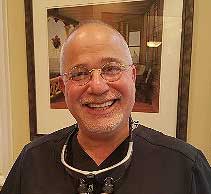
Advanced TMJ and Sleep Solutions
Advanced Sleep Solutions
Do you snore? Are you often tired and feel like closing your eyes when you sit down? Have you been told that you gasp or stop breathing during sleep?
Contact Us
Do you snore? Are you often tired and feel like closing your eyes when you sit down? Have you been told that you gasp or stop breathing during sleep?
Contact UsWhile sleep apnea primarily affects your breathing during sleep, it can have long lasting effects on your overall oral health. The connection between sleep apnea and TMJ (temporomandibular joint) disorder lies in the tension and stress placed on the jaw and facial muscles.
Do you snore? Obstructive Sleep Apnea occurs in 20-40% of adult snorers, and 90% go undiagnosed. Contact us to make an appointment & learn more about your treatment options.
516-791-4000
• Gasping or choking
• Feeling sleepy or tired
• Waking up tired
• Problems with memory and concentration
• Being Ill-Tempered
• Sleep On Your Side
• Lose Weight
• Exercise
• Avoid Alcohol & Medication
• Don’t Eat Near Bedtime

Member:
American Dental Association
Nassau County Dental Society
New York State Dental Society
American Academy of Orofacial Pain
American Board of Orofacial Pain

About 20 million Americans have OSA and 90% go undiagnosed. Snoring is known to be a sign of strained breathing, which can affect one's ability to have a restful night's sleep. Sleep apnea is when your airway is completely closed off (apnea) or partially blocked (hypopnea) for 10 seconds or longer , at least 5 times/ hour, and one's oxygen level is reduced at least 3 %, and there is an arousal from sleep. Obstructive sleep apnea is associated with Heart Disease, Hyper Tension, Strokes, Heart attacks, Type II Diabetes, Cancer, Gastric reflux, Cognitive Dysfunction, Fatigue, plus greatly increases the risk of motor vehicle accidents, personal and work related accidents, poor performance,depression and many other issues.
Sleep apnea has recently been associated with risk factors for serious medical conditions such as stroke, diabetes, cardiovascular disease including high blood pressure, heart arrhythmias, heart attack, and even erectile dysfunction.
Dr. Barry Rozenberg has been practicing dentistry for over 30 years. Dr. Rozenberg's focus is on Sleep Apnea , TMJ Disorders, and Orofacial pain.
Are you suffer from a Sleep Apnea disorder? Chances are you’ve been dealing with it for a long time. There’s good news is your condition is treatable.
It is a disorder that causes snoring patterns and irregular breathing. The term apnea itself refers to when a person momentarily stops breathing completely.
OSA is known to be the most common type which develops when there is a blockage of the airways.
Central sleep apnea occurs when the respiratory muscles fail to activate, due to the brain failing to signal the body to breath.
Preventative measures you can take to help avoid aggravating symptoms. These can include basic changes such as avoiding alcohol and sleeping pills as well as other depressant medications.
Many treatment options are available for snoring and sleep apnea. The recommend therapy for sleep apnea depends on its severity, which is usually determined by a sleep study or examination.
CPAP – Continuous Positive Air Pressure (CPAP) consists of a small device that pumps air into a mask that is held over your nose by a strap. The air pressure holds the airway open, allowing you to breathe more easily.
Provides an alternative CPAP and is primarily used for snoring or mid to moderate sleep apnea. Custom fabricated oral appliances hold the lower jaw and tongue forward to create more space in the back of the mouth and throat increasing the airway space.